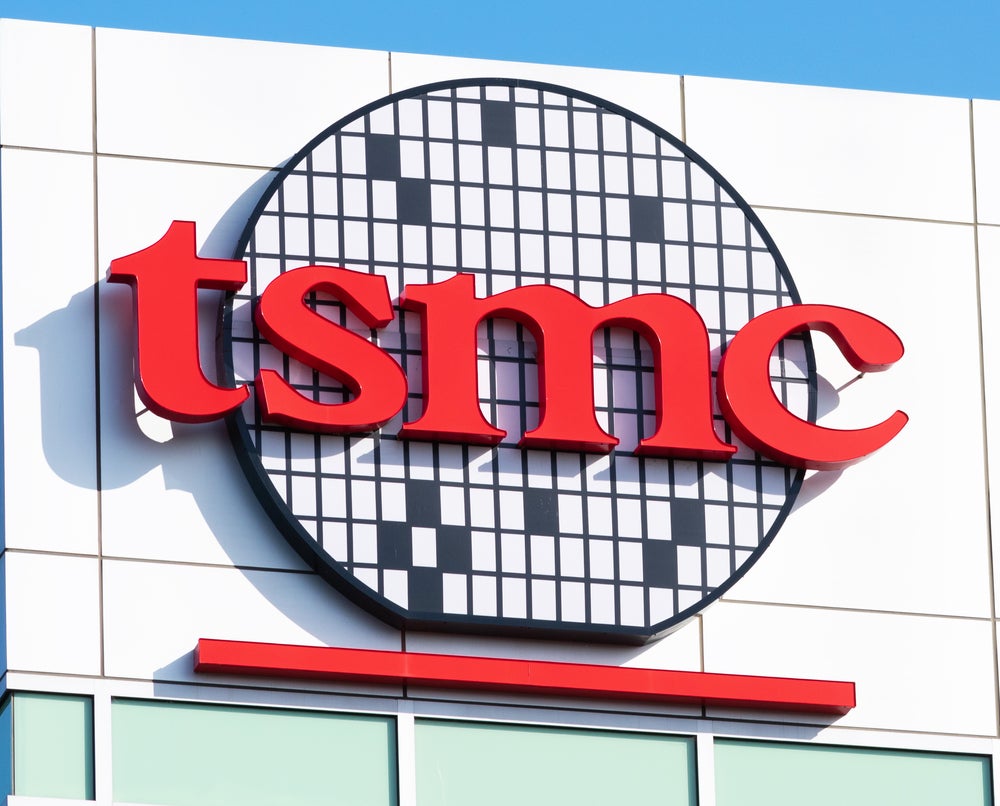
A chemical truck explosion at the Arizona construction site for one of Taiwan Semiconductor Manufacturing Company’s (TSMC) planned US semiconductor plants is just the most recent blow to the chip giant’s efforts to expand its footprint in the US.
According to reports on Thursday (16 May), a local construction union and the Phoenix Police Department confirmed the driver of the truck had died in the explosion.

Access deeper industry intelligence
Experience unmatched clarity with a single platform that combines unique data, AI, and human expertise.
TSMC, has a monopoly over high-end semiconductors as primary supplier to both Nividia and Apple, and is said to supply a staggering 95% of all cutting edge chips currently in circulation.
Following the passing of the 2022 US CHIPS ACT, TSMC has been courted by the Biden administration with investment incentives to establish chip manufacturing capacity on US soil.
A semiconductor supply chain squeeze following the Covid-19 crisis prompted policy makers across the world to ensure domestic supplies of advanced chips which are critical to the development of emerging technologies including AI.
TSMC’s three planned Arizona plants, at a cumulative investment of $65bn, represent the largest foreign direct investment project in US history. According to TSMC, the first Arizona fab is on track to begin production leveraging 4nm technology in first half of 2025. The second fab will produce the world’s most advanced 2nm process technology with next-generation nanosheet transistors in addition to the previously announced 3nm technology, with production beginning in 2028.

US Tariffs are shifting - will you react or anticipate?
Don’t let policy changes catch you off guard. Stay proactive with real-time data and expert analysis.
By GlobalDataBut TSMC’s efforts to expand globally have been met with significant challenges in the US, prompting some to consider whether the Taiwanese chip giant might divert any future US investment to other locations more suited chip manufacturing.
According to the company, the addition of the third Arizona fab will bring the total number of jobs created to approximately 6,000 – and more than 20,000 unique construction jobs, as well as tens of thousands of indirect supplier jobs.
While the Biden administration is delighted with the economic development this level of job creation brings, particularly in an election year, many industry experts have voiced concerns over whether the US has the capacity to fulfil such skilled work.
In addition, reports have emerged of on-site cultural clashes between a highly unionised US workforce and TSMC managers about working practices that do not align with the US working culture, of both disgruntled US workers and those brought to the US from Taiwan, as well as on-site safety concerns. TSMC has struggled to fill jobs locally while local population workers have accused the company of importing workers to undercut local salaries.
Reports have also emerged that TSMC is having difficulty filling roles with workers experienced in handling highly complex and sensitive equipment used in chip making. STEM education levels lag behind those in Taiwan, Korea, and the rest of Asia.
Will TSMC redirect investment away from the US?
According to GlobalData Thematic Intelligence senior analyst Mike Orme, TSMC is under increasing pressure from Apple, among others, to diversify faster and further away from Taiwan where it has the majority of its operations.
Taiwan has a number of problems that may affect its ability to ensure a continuous supply chain, not least the risk of earthquakes, a proneness to drought (the chip industry requires vast amounts of water) along with the China invasion, sabotage or blockade threat.
TSMC founder Morris Chang was opposed to the Arizona project from the outset, according to Orme. The US is not ideally suited to setting up a high-end semiconductor fab. Chang knew, “that it would cost 50% more to do so in the US than in Taiwan, and that key customers such as Apple and Nvidia would have to pay appreciably more for chips supplied from Arizona than from Taiwan,” said Orme.
But geopolitics prevailed over free trade and business fundamentals as the semiconductor industry (particularly for advanced chips) has become increasingly geopolitical.
“A series of mishaps, a lack of skilled US labour to build the plant and install the EUV equipment plus Washington’s foot dragging over $6.6bn in subsidies and $5bn in loans to TSMC under the CHIPS Act have led to over a year’s delay in bringing the first fab on stream,” said Orme who added that US customers will still most likely have to get sub 5nm chips from Taiwan until late in the decade.
The biggest issue for TSMC is that its success is built on the back of a highly skilled, experienced and diligent workforce in Taiwan with nothing of the kind being available in the US, according to Orme.
“Its only other leading edge foreign diversion is to Japan where things are ahead of schedule! An exploding truck is an example of just one thing after another in TSMC’s Arizona saga,” he said.
Will TSMC turn away from the US?
The urgency for global expansion to come quickly along with the delays and hiring difficulties hampering TSMC’s operations in the US, may result in TSMC turning away from the US as an investment destination.
As an example, Japan’s government subsidies, its world leadership in critical specialty chemicals and materials and production equipment, its diligent and skilled workforce, plus the fact that Japan is lower cost than either the US or Europe, makes it a good place to diversify out of Taiwan – East and South China Sea geopolitical hotspots notwithstanding, according to Orme.
“The TSMC Japan blueprint has multiple Japan plants under consideration with one already producing ‘middling’ 12nm chips for Japanese customers six months ahead of schedule, and a second plant scheduled to be producing 6nm and/or 5nm chips in 2025. A third plant making 3nm chips may not be confirmed yet,” said Orme.







